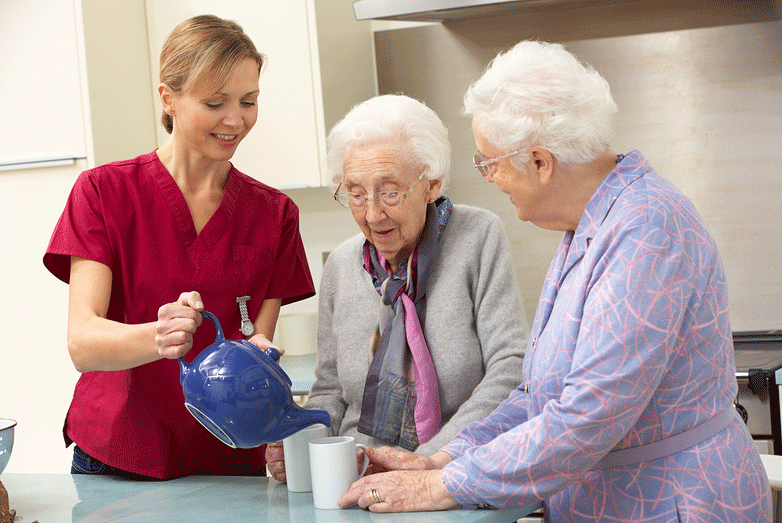If your loved one is constantly falling, calling you at all hours of the day or night, or struggling to recover from a recent injury or illness, it might be time to consider assisted living for seniors.
Making the decision to move your loved one into assisted living is far from easy and can be both emotionally and financially taxing. Many elderly people don’t have any interest in leaving their home and may even put up a fight about it. If this is the case, you might be better off to bring someone into the home to provide full-time in-home care, although this can get very costly and is often out of budget. Not to mention, quality assisted living facilities provide far more perks, such as preventing seniors from becoming isolated and lonely. Discuss all options with your loved one so that they feel like they are a part of the decision.
Here Are Some Common Signs It’s Time To Consider Assisted Living For Seniors
1. They continue to have accidents, such as falls.
If your loved one is falling, recovering and then falling again it might be a sign that living alone is becoming too dangerous to risk. One accident isn’t a deal breaker, but when the same accidents happen again and again, you’re basically playing Russian roulette. The risks won’t decrease, the older we get the more likely falls and other accidents are to occur.
2. Your loved one has a chronic health condition that’s only getting worse.
Dementia, congestive heart failure or any other chronic health condition that becomes increasingly worse with time will at some point require full time care. It’s best to enlist full-time help before their condition becomes too bad.
3. They are struggling to manage day-to-day activities like showering, cooking, cleaning, etc.
Balance can impact an elderly person’s ability to shower, while dementia can make cooking a dangerous endeavor. There are many reasons elderly patients often struggle with normal day-to-day activities. Without proper help, this can translate to a decrease in quality of life, health and overall wellbeing.
IADLs (instrumental activities of daily living) and ADLs (activities of daily living) are both required for living independently. IADLs and ADLs include things like shopping, dressing, cooking, doing laundry and regularly taking medications on time. A doctor, social worker or geriatric specialist can perform a series of functional assessments to identify if your loved one is in fact struggling with these day-to-day tasks.
4. Their recovery from a recent illness or injury is slow and worrisome.
How is your loved one recovering from a recent illness or injury? Are they able to get the medical help they need without assistance? Or did a small cold develop into bronchitis? The ability to properly treat oneself when sick or injured is fundamental to living alone. Yet, as people age their ability to properly look after themselves decreases while their risk for illness and injury increases.
5. There are noticeable changes in appearance.
If your loved one’s well-kept appearance has begun to dwindle it might be a sign that they need additional help and care throughout the day. Physical changes to look out for include:
-Weight loss or weight gain
-Appearing more frail, or struggling to get up from a chair or maintain balance.
-Body odor or lack of hygienic care
-Not keeping up with shaving, doing their hair, getting dressed, and other activities they used to pride themselves on.
6. Your loved doesn’t seem to have the same circle of friends they once had.
As people age their circle of friends tends to decrease for a wide variety of reasons. Isolation and loneliness are some of the most pressing problems facing elderly populations, both of which are associated with an increased risk for depression and even heart problems.
Assisted living provides your loved one with an entire group of same-aged people to befriend and seek companionship in. Signs your loved one may be suffering from loneliness or isolation include:
-They are not staying busy or have nothing marked on their calendar.
-They are spending an increasing amount of time in bed or on the couch sleeping and watching TV.
-They tell you that they are bored.
-They have not left the house in a number of days.
A quality retirement home does not lock away patients, but instead provides daily socializing, fun outings and enriching activities that can help solve issues related to loneliness, isolation and boredom.
7. Your loved one is spending money carelessly.
Check through your loved one’s mail to make sure they are not donating to random charities, forgetting to pay their bills, ordering useless products off of infomercials, or allowing random door-to-door salesmen into their home. These are all things that increase your loved one’s chance of being taking advantage of, robbed or even injured.

